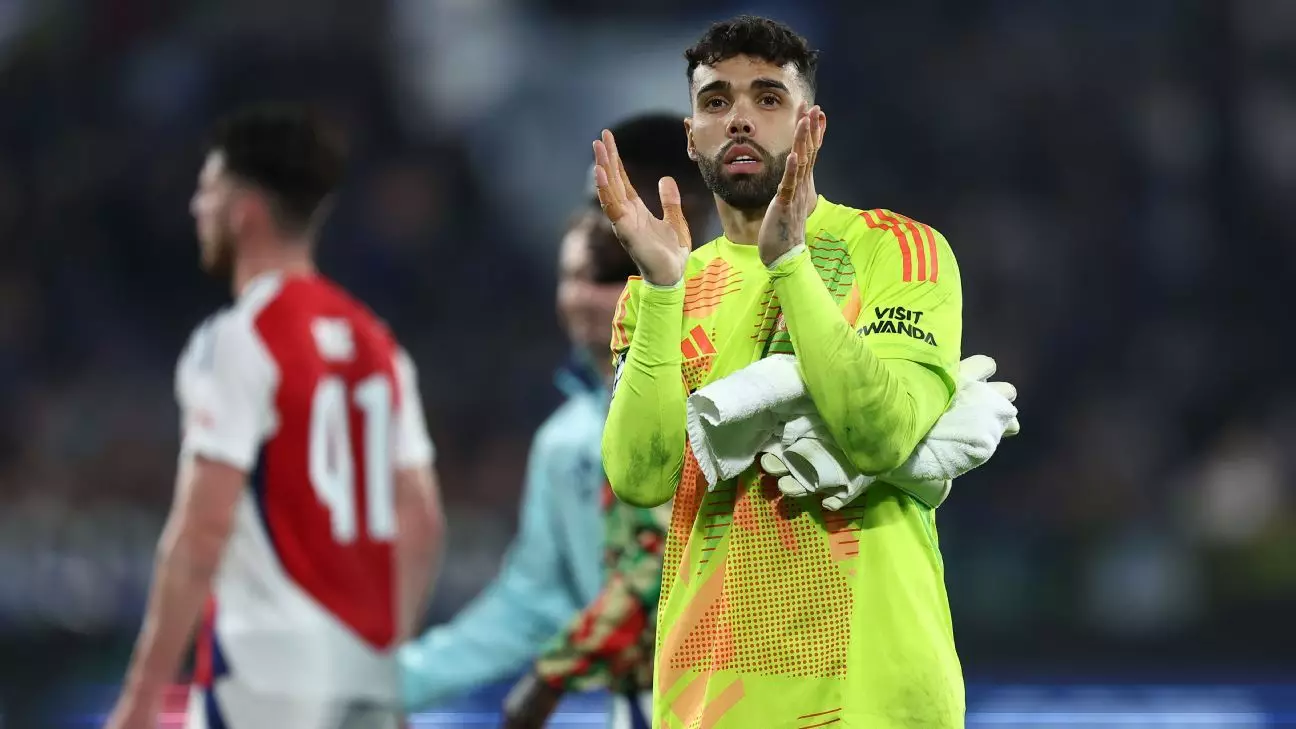Arsenal commenced their UEFA Champions League journey with a gritty 0-0 draw against Atalanta at the Gewiss Stadium in Bergamo. The match encapsulated the tactical rigidity and cautious approaches from both sides, demonstrating the high stakes that accompany European football. This article provides an in-depth analysis of the match, examining key performances and implications for the Gunners moving forward.
Defensive Resilience Prevails
Both teams entered the match knowing the importance of a strong defensive showing, and their outlook influenced the play significantly. In the first half, the contest was characterized by a lack of clear-cut opportunities, with Arsenal’s Bukayo Saka hitting a free-kick that presented the best chance, albeit one that was easily handled. Gabriel Martinelli, despite his industry, found his efforts either off target or lacking the necessary bite to trouble the Atalanta goalkeeper.
As the match progressed, Atalanta nearly took the lead when Arsenal’s Thomas Partey conceded a penalty early in the second half. However, goalkeeper David Raya emerged as the star, executing a remarkable double save against Mateo Retegui, who had the golden opportunity to put his team ahead. This moment of brilliance not only preserved the scoreline but also highlighted Raya’s vital role in Arsenal’s defensive structure.
Missed Opportunities Influence the Game
The second half saw a surge in intensity, particularly from Atalanta. Juan Cuadrado flashed two attempts from outside the box, showcasing the Italian side’s eagerness to capitalize on any lapse in Arsenal’s defense. Nonetheless, it was the Gunners who had the clearest opportunity to break the deadlock, with Martinelli failing to convert a golden chance created by substitute Raheem Sterling. Despite his keen effort, the lack of composure in front of goal signaled a concern that Arsenal would need to address as their Champions League campaign unfolds.
This trend of missed opportunities is indicative of a larger issue for Arsenal; while they displayed commendable defensive acumen, their attacking play often lacked the sharpness necessary to convert pressure into goals. The propensity for over-hitting final passes led to a frustrating evening for fans, as offensive moves frequently ended in turnovers, dousing any budding momentum.
Mikel Arteta’s management throughout the game was notable. His decisions regarding substitutions were timely, particularly the introduction of Sterling, who provided a spark that nearly changed the course of the match in Arsenal’s favor. Arteta’s strategy heavily emphasized compact defense, seeking to deny Atalanta any real rhythm in their attack. However, the apparent reluctance to push forward with greater urgency left the Gunners reliant on moments of individual brilliance rather than cohesive team play.
Arteta acknowledges the importance of building on this performance as a foundation for future matches. While gaining a point on the road is valuable, particularly against a team that lifted the UEFA Europa League trophy, it highlights the necessity for Arsenal to refine their attack. The balance between defensive stability and attacking ambition is crucial as they navigate through complicated fixtures in Europe.
Reviewing player performances, it was evident that David Raya stood out, earning an 8/10 for his heroic contributions, particularly during the penalty incident. Meanwhile, defenders like William Saliba and Gabriel proved pivotal in thwarting Atalanta’s advances, garnering solid ratings for their disciplined approaches. However, the Gunners’ frontline, featuring Martinelli, Saka, and Jesus, received criticism for their inability to effectively convert chances, with ratings lingering around 5 or 6, illustrating they failed to meet expectations.
Among the substitutes, Leandro Trossard and Jorginho showed moments of promise, but their influence was limited in the latter stages of the match. Sterling’s inclusion was a significant moment, as he became the first player to represent four different English teams in the Champions League, yet he failed to change the outcome decisively.
The draw serves as a mixed bag for Arsenal. While the defensive discipline is something to build upon, the Gunners must address their attacking inefficiencies as they progress through their European campaign. Competing at this level necessitates a balance of robust defending complemented by incisive attacks. As they look ahead, Arsenal will seek to find their rhythm in the final third while maintaining the defensive solidity demonstrated against Atalanta—a challenging dual task in pursuit of Champions League success.


Leave a Reply